The anniversary of the Battle of New Orleans was long celebrated as a national holiday, an occasion for chest-thumping speeches, music, parades, and banquets. These observances were often tied to Jackson’s political rise and his association with the Democratic Party. Yet, as Jackson’s biographer James Parton observed, "not even the party celebrations of the eighth of January ought to hide from us or obscure the genuine merit of those who, in the darkest hour this republic has ever known, enabled it to believe again in its invincibility, by closing a war of disaster in a blaze of triumph."

Not an Appetizer. A. Jackson. “By the Eternal, No More Eighth of January Dinners for Me!”
February 7, 1880; wood engraving
by Thomas Nast, cartoonist
The William C. Cook War of 1812 in the South Collection at The Historic New Orleans Collection, MSS 557, 2008.0101.11
This political cartoon from Harper's Weekly pokes fun at the Tammany Hall scandals that had tarnished the Democratic Party political machine in New York City. A calendar on the wall behind Jackson calls January 8 "St. Hickory Day."
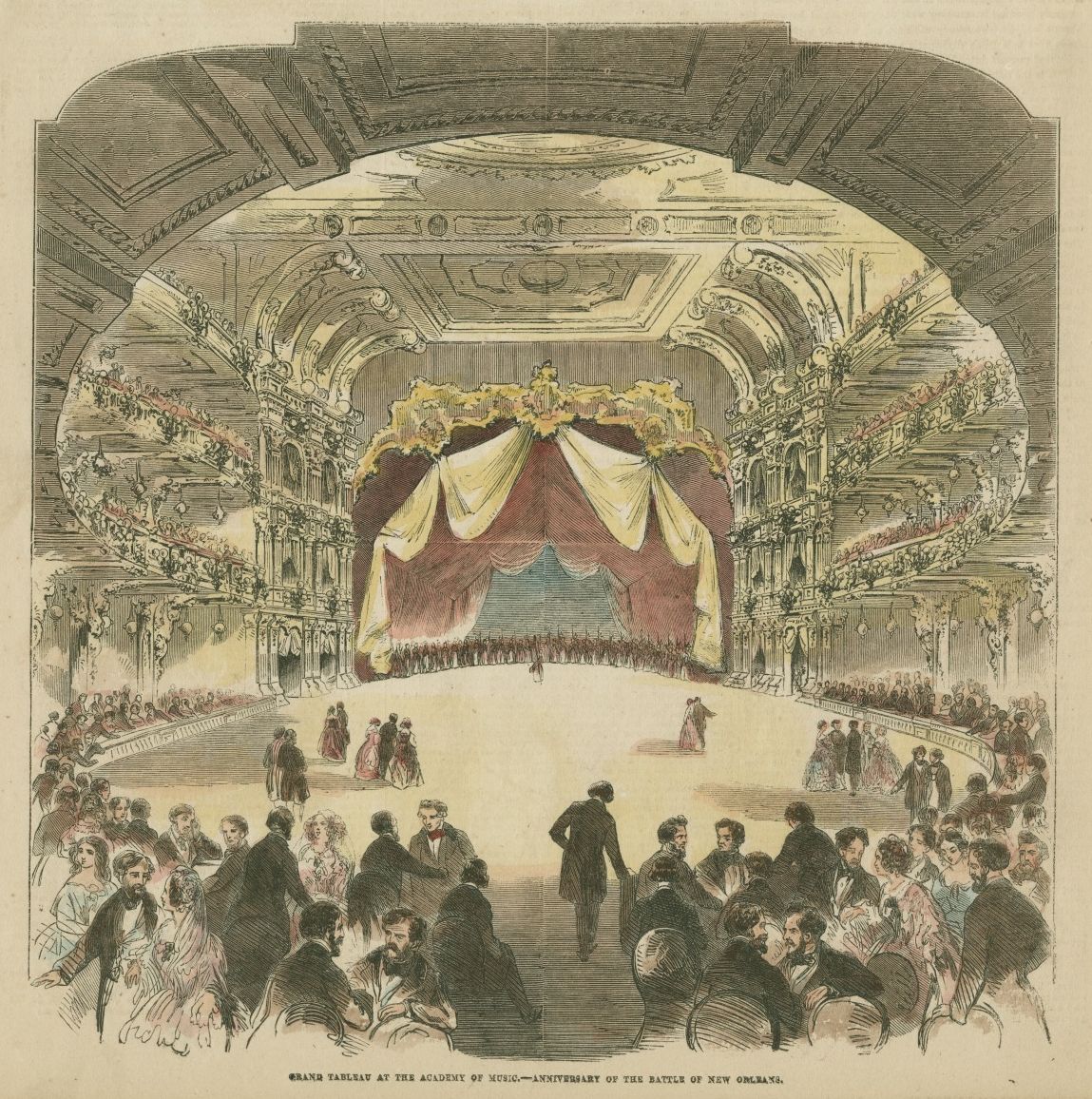
Grand Tableau at the Academy of Music—Anniversary of the Battle of New Orleans
1858; hand-colored wood engraving
The Historic New Orleans Collection, 1981.276
This newspaper illustration shows a large performance hall with ornate balconies and crowds of people watching a theatrical tableau on January 8, 1858, the forty-third anniversary of the famous battle. A semicircle chorus of women and mock "troops" stands in the background, in front of the stage.
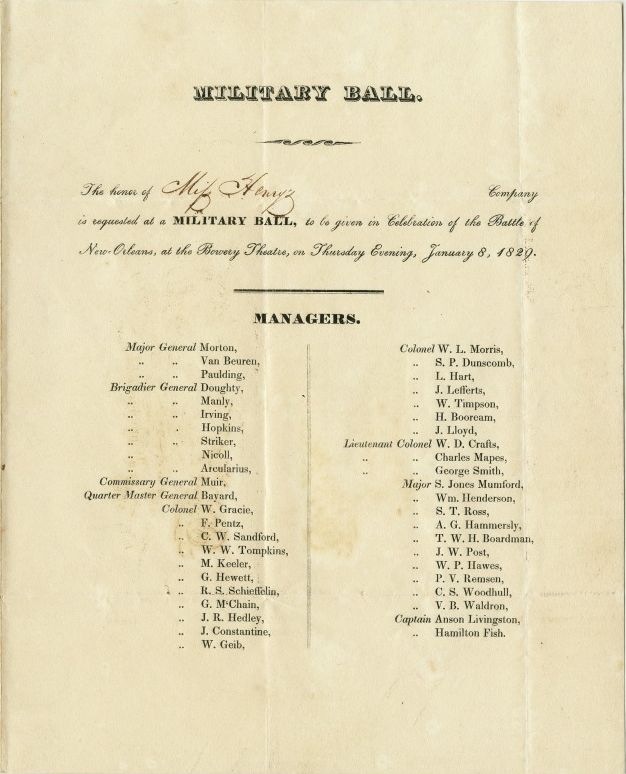
Invitation to a military ball commemorating the Battle of New Orleans at the Bowery Theatre, New York
1828; letterpress with handwritten address
The Historic New Orleans Collection, acquisition made possible in part by William C. Cook, MSS 557, 2012.0031
Military and civilian balls were common commemorations of the 1815 victory at New Orleans. This invitation for an 1829 ball lists some prominent New Yorkers, including Major General William Paulding Jr., a war hero, a former congressman, and, at that time, the mayor of New York.
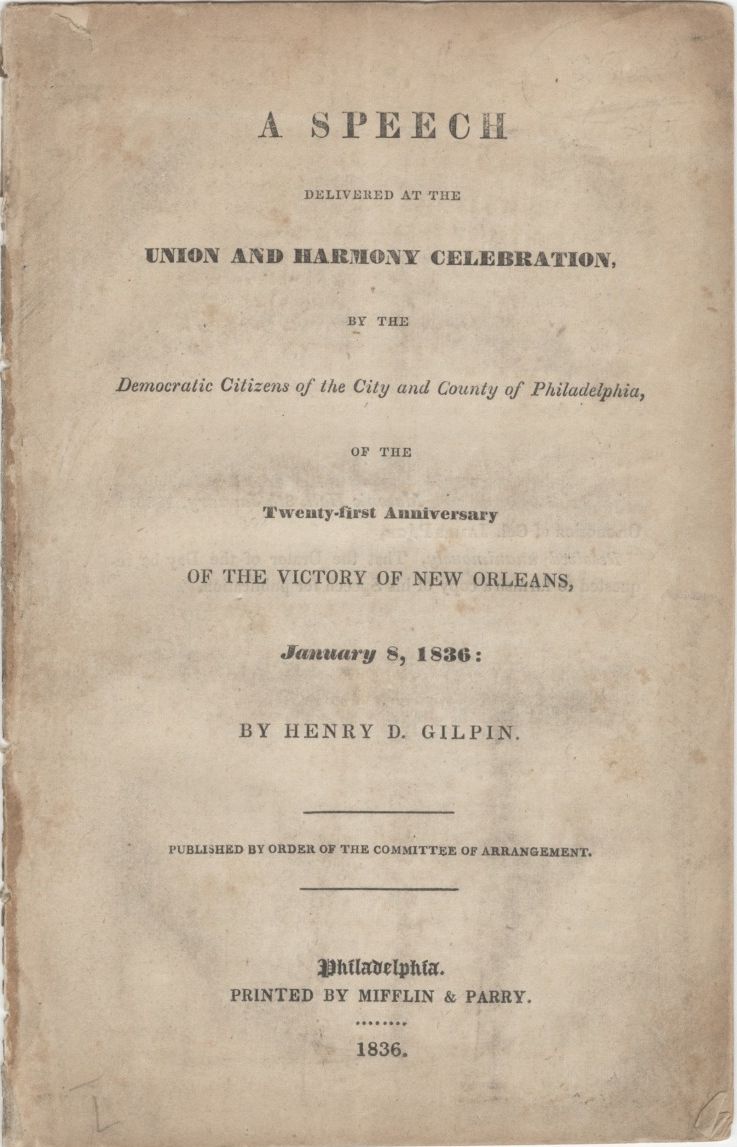
A Speech Delivered at the Union and Harmony Celebration, by the Democratic Citizens of the City and County of Philadelphia, of the Twenty-First Anniversary of the Victory of New Orleans . . .
by Henry D. Gilpin, author
Philadelphia: printed by Mifflin and Parry, 1836
The William C. Cook War of 1812 in the South Collection at The Historic New Orleans Collection, MSS 557, 2006.0419.348
Prominent Democratic Party leaders commemorated January 8 with patriotic speeches. The author of this example, the attorney and statesman Henry Dilworth Gilpin (1801–1860), served as solicitor of the US Treasury and later as US attorney general in the Van Buren administration.
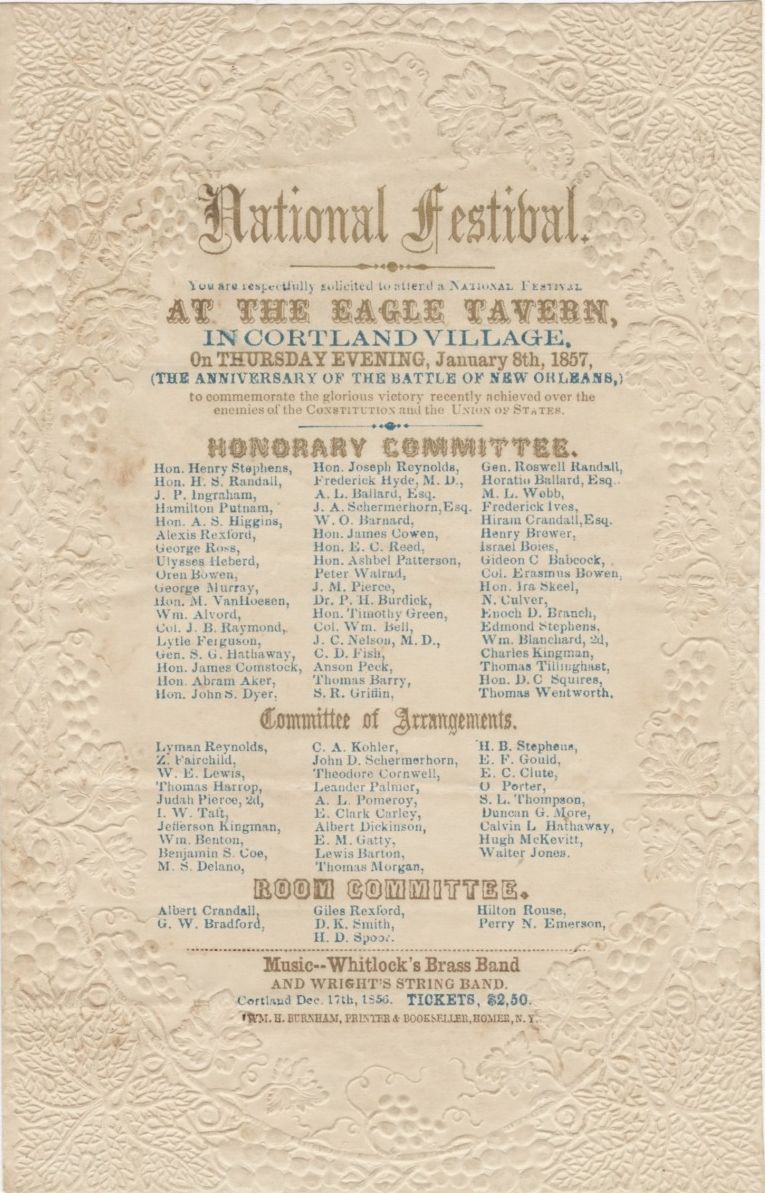
National festival . . . at the Eagle Tavern, in Cortland Village . . .
Homer, NY: Wm. H. Burnham, 1856
The Historic New Orleans Collection, gift of an anonymous donor, 2007.0281.3
The anniversary of the Battle of New Orleans was celebrated as a national holiday in many places throughout the country. It was seen as a patriotic occasion very much on a par with the Fourth of July.
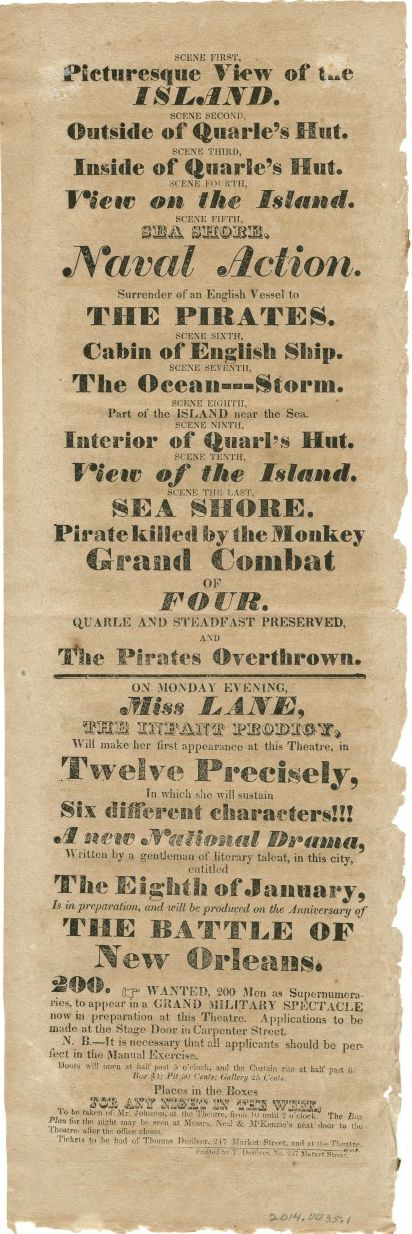
Advertisement concerning a reenactment of the Battle of New Orleans at the Chestnut Theatre, Philadelphia
1829; letterpress broadside
by T. Desilver, printer
The Historic New Orleans Collection, 2014.0035.1
This advertisement from a Philadelphia theater seeks two hundred extras to portray soldiers in an 1829 play commemorating the Battle of New Orleans, titled "The Eighth of January," by Richard Penn Smith.
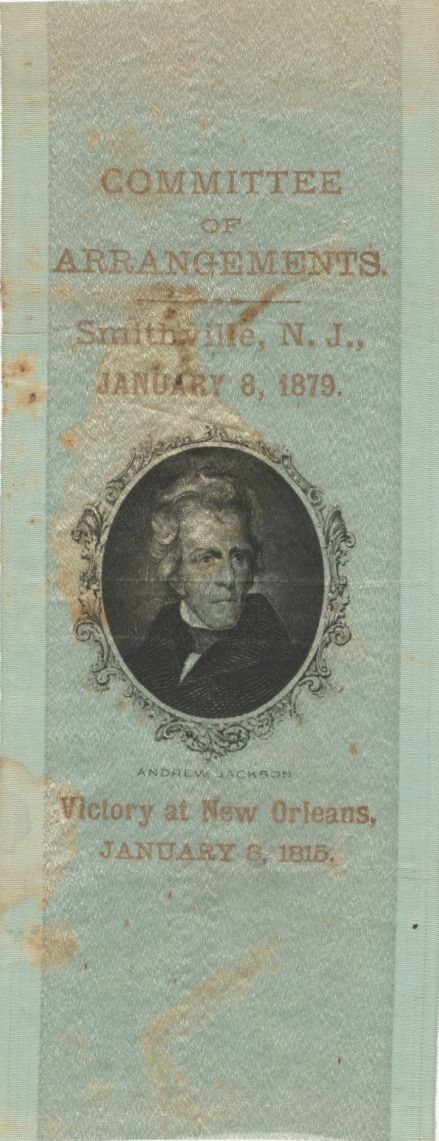
Commemorative ribbon celebrating the victory at New Orleans
1879; engraving with letterpress on silk
by an unknown engraver; after Thomas Sully, artist
The William C. Cook War of 1812 in the South Collection at The Historic New Orleans Collection, MSS 557, 2008.0101.12
Many January 8 celebrations were organized by local Democratic Party committees, as a way to keep their party's leading candidate in the public eye. The practice continued well after Jackson's death. This 1879 souvenir was produced in Smithfield, New Jersey.
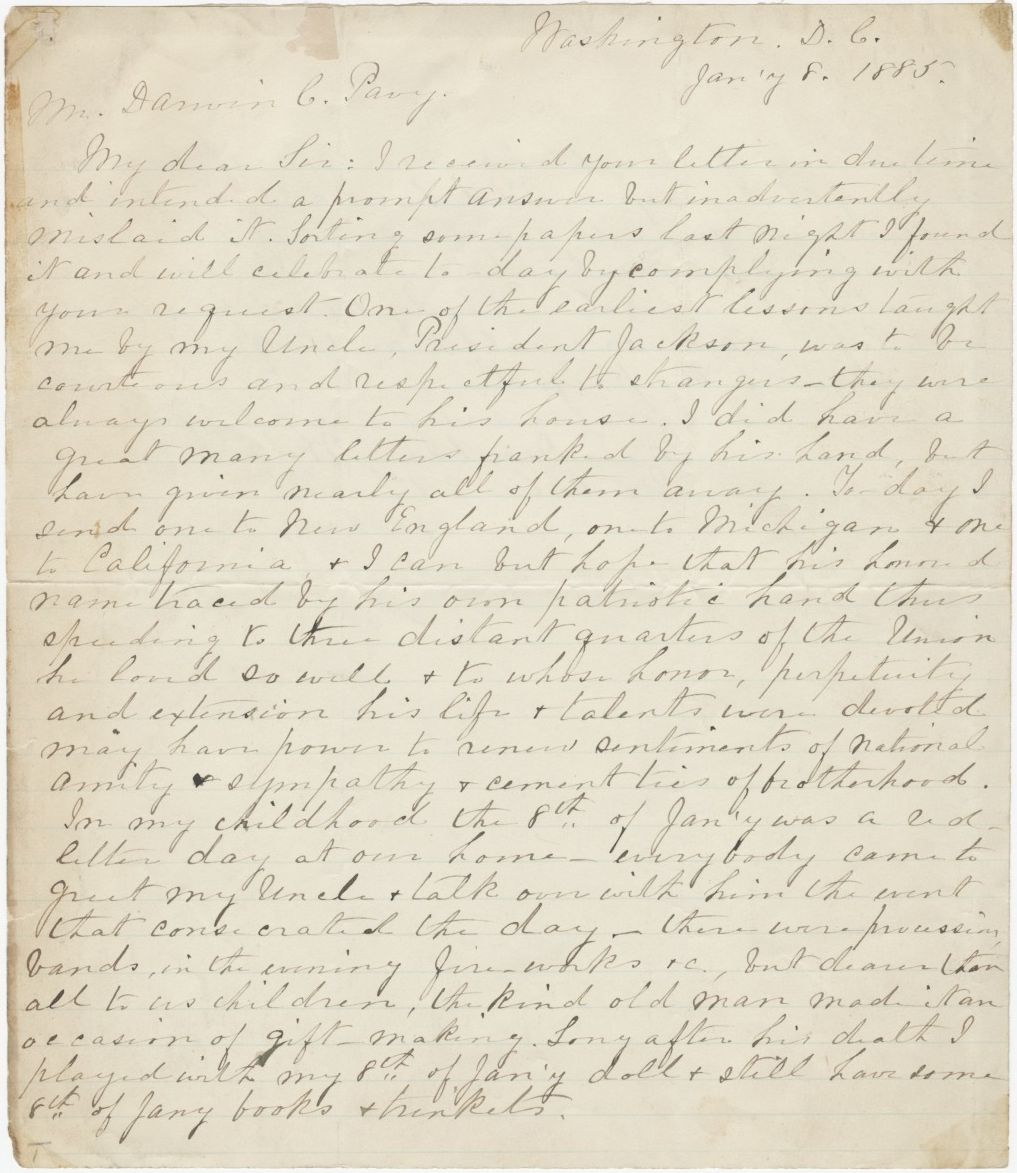
Letter by Mary Emily Donelson Wilcox regarding her childhood at the Hermitage
January 8, 1885; manuscript letter
The William C. Cook War of 1812 in the South Collection at The Historic New Orleans Collection, MSS 557, 2006.0313.58
Mary Emily Donelson Wilcox (1829–1905) was the daughter of Andrew Jackson's nephew Andrew Jackson Donelson and his wife, Emily Donelson. In this letter Mary shares childhood memories of how the anniversaries of the Battle of New Orleans were observed at the Hermitage. She recalls that Jackson himself played a major role in these events.
